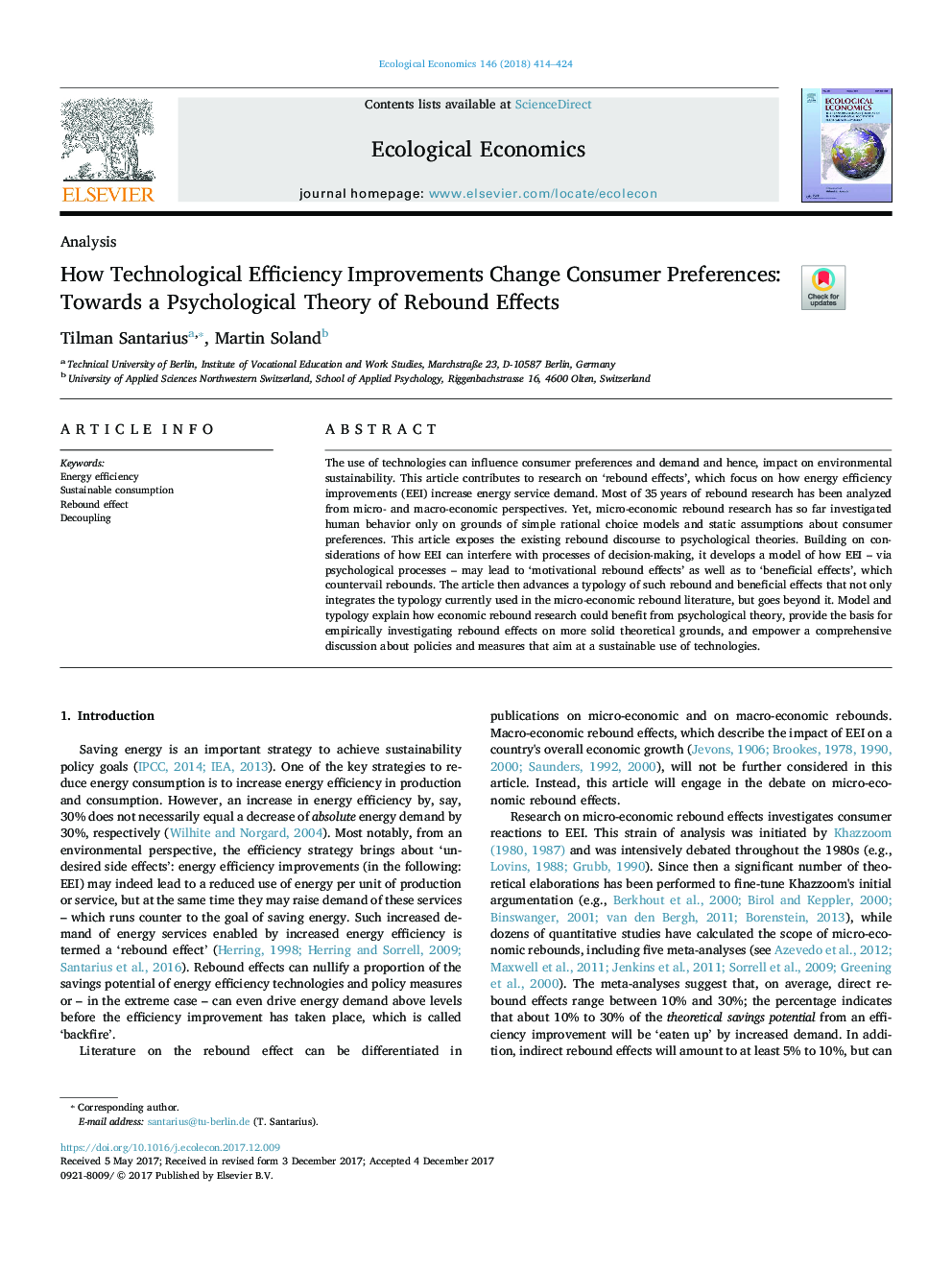| Article ID | Journal | Published Year | Pages | File Type |
|---|---|---|---|---|
| 7344605 | Ecological Economics | 2018 | 11 Pages |
Abstract
The use of technologies can influence consumer preferences and demand and hence, impact on environmental sustainability. This article contributes to research on 'rebound effects', which focus on how energy efficiency improvements (EEI) increase energy service demand. Most of 35Â years of rebound research has been analyzed from micro- and macro-economic perspectives. Yet, micro-economic rebound research has so far investigated human behavior only on grounds of simple rational choice models and static assumptions about consumer preferences. This article exposes the existing rebound discourse to psychological theories. Building on considerations of how EEI can interfere with processes of decision-making, it develops a model of how EEI - via psychological processes - may lead to 'motivational rebound effects' as well as to 'beneficial effects', which countervail rebounds. The article then advances a typology of such rebound and beneficial effects that not only integrates the typology currently used in the micro-economic rebound literature, but goes beyond it. Model and typology explain how economic rebound research could benefit from psychological theory, provide the basis for empirically investigating rebound effects on more solid theoretical grounds, and empower a comprehensive discussion about policies and measures that aim at a sustainable use of technologies.
Related Topics
Life Sciences
Agricultural and Biological Sciences
Ecology, Evolution, Behavior and Systematics
Authors
Tilman Santarius, Martin Soland,
